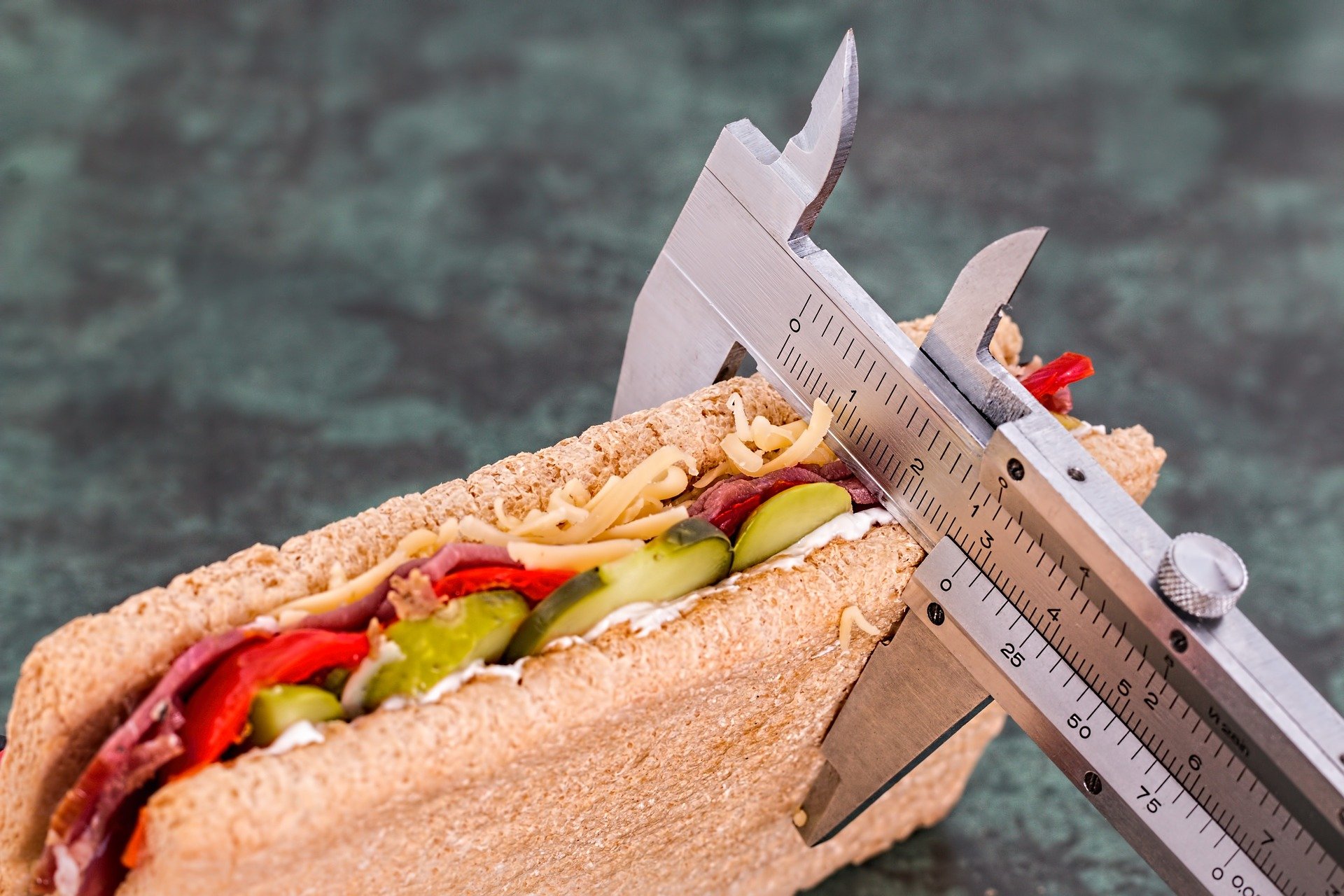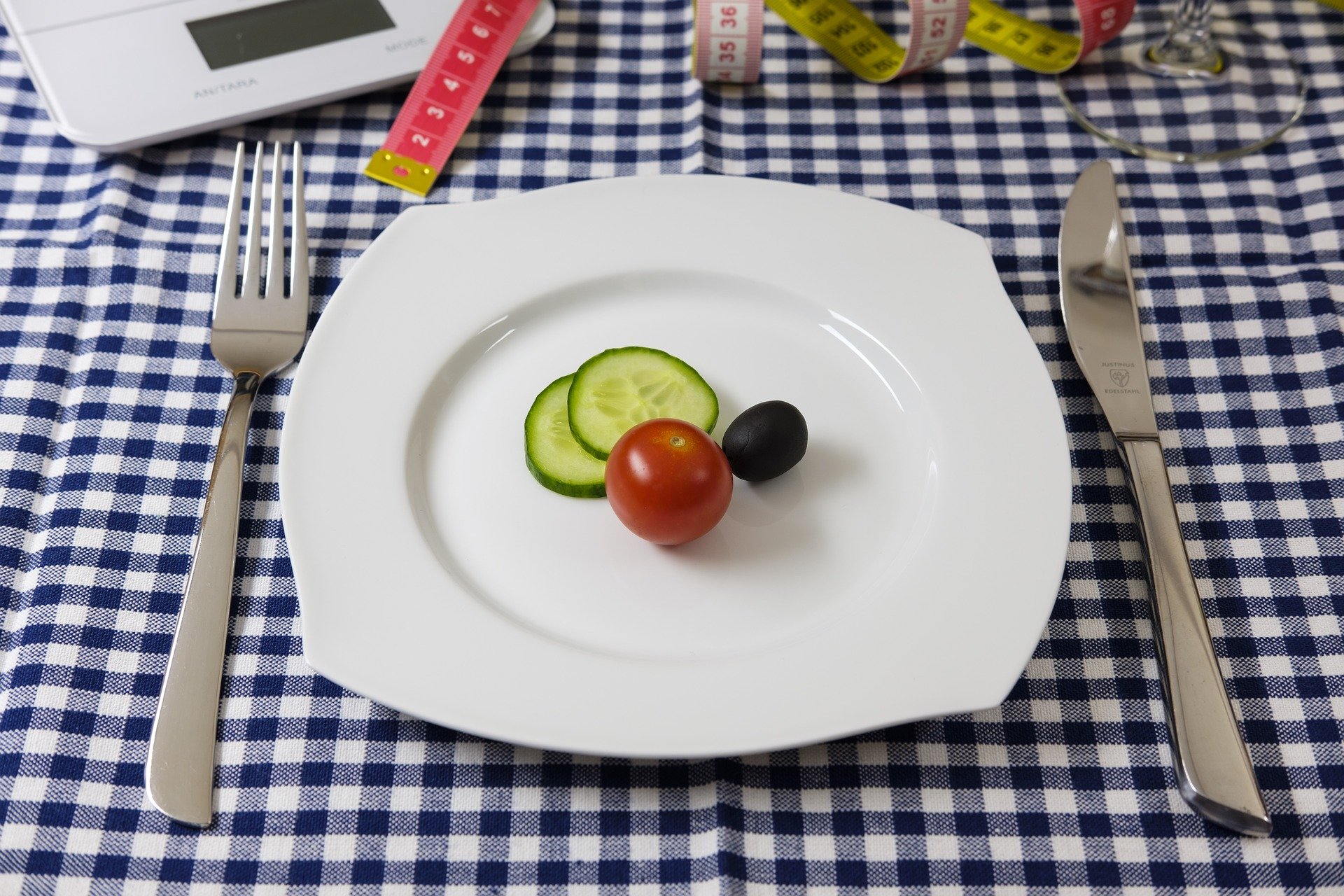Calories. Basic units at work of a mine dietitian. You can often read that "counting calorie is not important and makes no sense because a calorie is not equal". This is partly true, but not entirely. I will try to cope with the myths around these units and bring you closer to their meaning, let's go!
At the beginning the basic question:
What is calorie?
A calorie is a unit of energy, and more specifically, heat. In dietetics, however, most often we use a unit of kilocalories - kcal. The converter is simple. 1 kcal = 1000 cal.
If you find the following on the packaging of the product: contains 200 kcal, this means that the consumption of such a product triggers in the human body AVERAGE 200 kcal. Why average? Each organism is different and there may be slight differences in the absorption of energy caused by many factors, for example, various intestinal states, diseases and composition of the microflora. The energy that the body obtains after ingesting, processing and burning a given calorie, serves to sustain life processes and our actions.

How is the number of calories measured in a product?
I think it's very interesting! In the end, it is difficult to measure what amount of energy we have absorbed by eating a particular food, it would be a very complicated procedure using food marked with radioactive markers. This is done in practice in a much simpler way. The tested product for this purpose literally burns. Yes, it simply burns in a special laboratory instrument - a calorimeter. The calorimeter measures the heat released from the combustion of the product on the occasion and gives it in calories. Now it is enough to correct the result obtained on the basis of the absorption of a given component in the human intestines. For example, sugar is absorbed in the intestines in 98%, so the result obtained from combustion should be multiplied by 98%.
Of course, this procedure is not always carried out. Usually, in determining the caloric value of products, we use the previously identified references.
The basic knowledge is that:
- 1 gram of protein provides 4 kcal
- 1 gram of carbohydrates provides 4 kcal
- 1 gram of fat provides 9 kcal
- 1 gram of alcohol provides 7 kcal
- 1 gram of fiber provides 0-2 kcal (the fiber is not digested by the body, however, intestinal bacteria break down its part and recover energy, so in total it probably provides about 2 kcal)
It makes fat the richest source of energy - that would be right. Products containing a large amount of fat are often the most caloric.
Does a calorie equal calorie?
Not completely. As you probably know, 100 g of lettuce provide only 15 kcal, an incomplete teaspoon of sugar also about 15 kilocalories. So, will eating 100 g of lettuce be comparable to eating a teaspoon of sugar? Well... no. Lettuce will provide us with other ingredients such as vitamins, minerals, and fiber. Looking at the matter, however, only from the energy gained point of view, eating a teaspoon of sugar will be equivalent to eating 100 g of lettuce. That is why sometimes some products are called "empty calories". Because, in addition to energy, they do not provide the body with anything or almost nothing. These include alcohol or sweets.
Is it worth counting calories?
Yes and no. Not, if you do not want to change weight and body proportions. You probably do not need it. Yes, if you want to lose weight or gain weight. To lose weight it is absolutely necessary to obtain a negative caloric balance, i.e. to eat less calories than you consume. You can achieve this by eating less than before, or by increasing energy expenditure - physical activity. To gain weight similarly, you need to eat more calories than you consume - get a positive caloric balance. Many people are able to modulate the figure without counting calories, but it requires some practice and good insight with their own body, as well as general nutrition with the nutritional value of products.
Counting calories is a good way to control the energy value of your diet. Often the feeling of saturation is not synonymous with the caloricity of the meals we eat. My patients who are "slimming down", often after getting the diet I wrote for them, are very surprised "Do I have to eat so much?I want to lose weight!". This is because meals are low in calories, but rich in micronutrients. They are very surprised when the first effects appear after a week and they did not feel hungry at all!

If slimming down is so simple, why do I need a dietitian?
Yes, weight loss is simple. You just need to eat less calories than you consume by everyday activity. You could theoretically drink 2 cans of cola a day, eat a large packet of chips and that's it. You could get slimmer. Anyone who has ever tried to lose weight knows that it is not as easy as it seems. Performing a good reduction, without the yo-yo effect, without losing health at the same time, providing the body with all the necessary vitamins, minerals and fats, it's an art. You can not limit the number of calories in your diet too much so that there is no yo-yo effect. You need to rely on products rich in vitamins and minerals, so as not to cause them to be deficient.
Of course, I am not saying that it is not possible to carry out this process on your own, but it requires some practice, knowledge, and adherence to a few principles that I try to share with you on every occasion in my posts. So if you're going to do a weight loss or weight gain process, I strongly recommend you to control the number of calories consumed. In the next post, which will be released the day after tomorrow, I will tell you how to count exactly how many calories you need, and how to determine the right calorific value of the diet depending on the desired goals.
Do I need to count calories?
No, but it's only because I'm not trying to lose weight or gain weight at this point. In addition, I am quite into in food, so I know what portions I can afford to keep my body weight and health ok. Some people also have a great "instinct" when it comes to the number of meals they need and eat a very similar amount of calories each day, even if they have never counted them in their lives.
I've just made an experiment recently. For three days, at the end of each day, I counted calories from my meals. I tried to eat as usual. The result was shocking to me! For 3 days I ate almost exactly 2300 kcal (which is more or less as much as I need) without paying any attention to it. One of the calculated days contained 3 meals, another 5, but the balance was identical. When I counted the calories consumed on the day I trained, I ate more, quite proportionally to the effort. It is, therefore, an option that you will develop such a system for yourself, or maybe you have already worked it out! Do not listen to your instincts well, if you want to lose weight. There are many hormones that will want to effectively prevent you from doing that.
